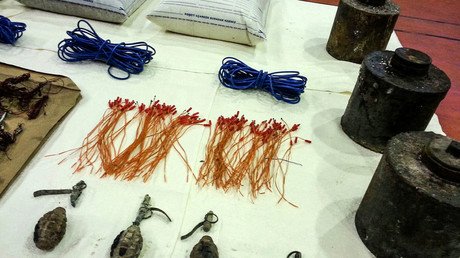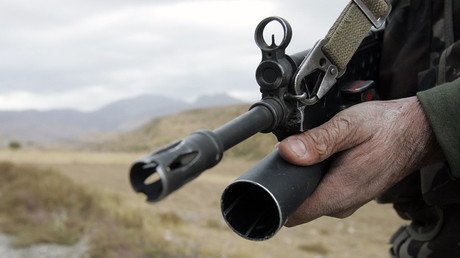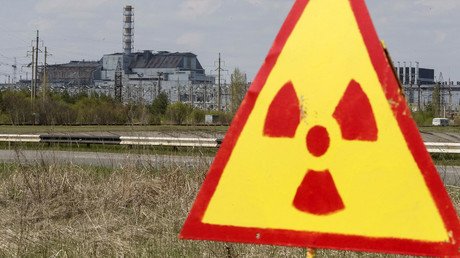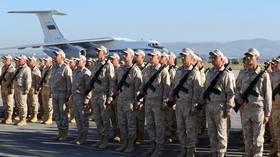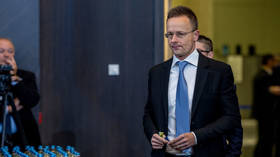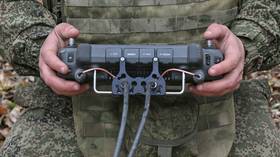ISIS might be capable of creating ‘dirty bomb’
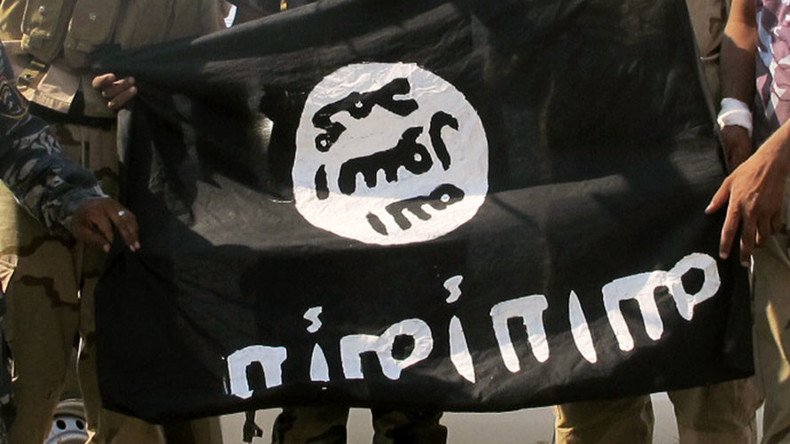
Although Islamic State (IS, formerly ISIS/ISIL) lacks the ability to create a nuclear weapon, it is set to seize ready-made nuclear material, and is capable of making a ‘dirty bomb’, Jack Rice, former CIA officer and international lawyer has told RT.
The threat of nuclear terrorism topped the agenda of the Washington Nuclear Security Summit.
In the wake of last week's bombings in Brussels, the alarm has been raised over Islamic State terrorists planning an attack on a nuclear facility. There are also concerns IS could attempt to steal nuclear materials to create a so-called 'dirty bomb'.
However, there are reports that terrorists have already seized almost 40 kilos of uranium compounds from the University of Mosul - one of the biggest scientific hubs in Iraq, which fell into IS hands two years ago.
In 2014, Iraq's ambassador to the UN warned the organization about the incident.
RT: The warning from Iraq came back in 2014, yet it seems to have been ignored for so long. Why was that?
Jack Rice: That’s a really great question. When you take a look at the realities that we have faced on a worldwide basis, I’m thinking in the West, in Europe, in the United States, this is something the Intelligence community was certainly aware of. When it came to Al-Qaeda there was no justification to ignore the ability for ISIS to really step up and do what they’ve done. We’ve seen references to it in Brussels, certainly this is the older story at Mosul, dates back to 2014.
RT: Uranium has to be enriched before it can be used as material as part of a bomb. To what extent do you think the terrorists could be capable of doing that?
JR: I think there are really two different approaches that could be used in a case like this. The idea of enrichment is something that ISIS really doesn’t have the technical capability and understanding to address, probably, unless they can actually get something that’s already been enriched, and this hasn’t. It’s more likely that what they could do is use some material to create something called a “dirty bomb”. That, in itself is massively important, because they can get access to something like that, which is something they were apparently looking into in Brussels. The thing that makes this important is that if they could set off something like that, what it could do, is essentially make an area that they set it off in unusable for potentially years to come. So contemplate the ramifications of something like that in a major metropolitan area, like Paris, or Frankfurt, or Berlin, or New York.
RT: How seriously do you think the US and the allies are taking this threat of ISIS capacity to create chemical weapons?
JR: I think they are now, more than ever before. And you realize with the most recent intelligence that they apparently have acquired out of Brussels, that ISIS was actually targeting one of the senior people inside of Brussels who deals with the nuclear programs themselves. Essentially, the effort to acquire that material really shows that ISIS is very conscious of this. This is something they’re aware of, something they’re focusing upon and if the West, the Americans and Europeans were not taking it seriously before, they must be now.
RT: Sadly, it may be too late to some extent with the Iraqi officials saying that Mosul might have provided bombs for attacks that have taken place overseas, including the recent ones in Brussels. Why is this facility still active? Why is it still there?
JR: This is the question. When you go back to 2014, you realize that it should have been a target then. There is a need to limit the ability of ISIS to operate. This is about excluding their ability to touch something and use it as a tool. To exclude their access is one of the most important things that you can do. I mean, the effort from the beginning here has always been to isolate them and to make a distinction between who they are who the rest of the Middle East is. So, hopefully, they will be rising up around them to surround them. But if what you’re doing is putting tools in their hands to continue to commit the acts that they are [doing], it’s not just counterproductive, it makes no sense whatsoever.
ISIS “would love to create a nuclear bomb if they could, but desire and even having some materials does not make that happen,” Larry Johnson, a retired CIA officer and a State Department official has told RT.
“If it was easy, then every country in the world would be doing it… And even then if you can produce the device, how do you deliver it? So there are still some major obstacles, thank God,” he said.
“This entire nuclear terrorism, I call it a shibboleth, is raised as a specter to scare people - and most people are frightened - to basically allow governments to do whatever to stop it,” Johnson said. “I always raise the question of what’s the propaganda value in bringing this out, what is the other motive because it’s never as it seems. We’ve known about this for years, but all of a sudden now we’re expressing alarm and concern in the West. That tells me that there’s some other agenda in thought,” he added.
Terrorists “clearly can produce low grade chemical weapons” and, also, have used already such weapons, the retired CIA officer says.
“They used sarin going back to August 2013. What was described as the sarin gas attack, it was not carried out by the government of Syria; that was carried out by the Islamic rebels.”
However, chemical weapons are not very effective, difficult to produce and use, Johnson says.
“They can kill some people in the concentrated area and they’re always having the hope that wind is blowing in the right direction and the temperature is appropriate and that it’s not raining. In terms of practical use they are weapons best-designed to stop an invading army,” he said.
The statements, views and opinions expressed in this column are solely those of the author and do not necessarily represent those of RT.
